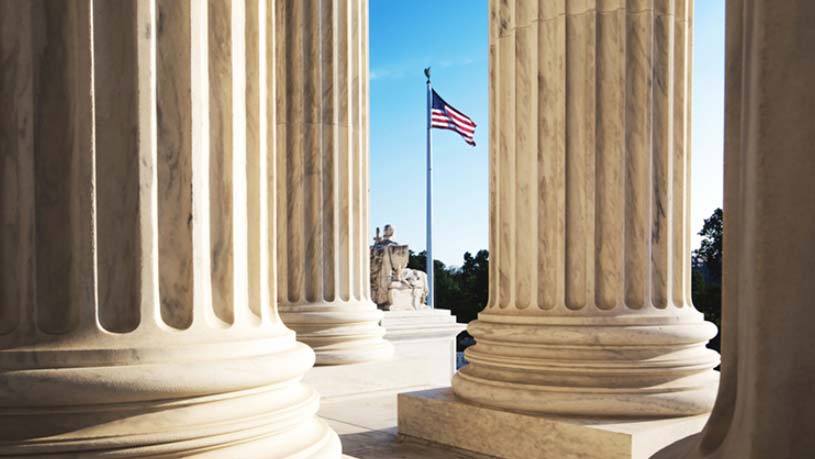U.S. DOL Proposes Increase to Minimum Salary for Exempt Employees

The DOL estimates that 3.6 million workers exempt from FLSA overtime under the current regulations would become newly entitled to overtime protection under the FLSA.
On Aug. 30, 2023, the United States Department of Labor (DOL) released its highly anticipated proposed overtime rule. This rule, if finalized, would increase the minimum salary amount required to be paid to executive, administrative and professional (EAP) employees and the required annual compensation to be paid to highly compensated employees (HCEs) in order for these employees to be considered exempt from the Fair Labor Standards Act (FLSA) overtime pay requirements. The DOL is also proposing automatic updates to these amounts every three years.
The proposed rule does not include any changes to the standard duties test used to distinguish between FLSA-exempt and non-exempt employees. The DOL estimates that 3.6 million workers exempt from FLSA overtime under the current regulations would become newly entitled to overtime protection under the FLSA.
Is the DOL increasing the overtime threshold in 2023?
The proposed rule will be open for public comment for 60 days. The DOL will then issue a final rule, which is expected to take effect sometime in 2024. The final rule is likely to be challenged in court.
Subscribe to Eye on Washington to receive the latest updates.
Background
Currently, to fall within the EAP exemptions, an employee generally must:
- be paid a salary, meaning that they are paid a predetermined and fixed amount that is not subject to reduction because of variations in the quality or quantity of work performed (the "salary basis test");
- be paid at least a specified weekly salary level, which is $684 per week (the equivalent of $35,568 annually for a full-year employee) in the current regulations (the "salary level test"); and
- primarily perform executive, administrative or professional duties, as provided in the DOL's regulations (the "duties test").
Certain employees are not subject to either the salary basis or salary level tests (i.e., doctors, teachers and lawyers).
HCEs performing office or non-manual work and paid total annual compensation of $107,432 or more (which must include at least $684 per week paid on a salary or fee basis) are exempt from the FLSA if they customarily and regularly perform at least one of the duties of an exempt executive, administrative or professional employee identified in the standard tests for exemption.
Read this fact sheet for more information on the EAP exemptions.
The details
Current overtime rule |
Proposed overtime rule |
The minimum salary required to be paid to an EAP employee for that employee to be exempt from the FLSA overtime requirements is $684 per week ($35,568 annually). |
The minimum salary required to be paid to an EAP employee for that employee to be exempt from the FLSA overtime requirements would be $1,059 per week ($55,068 annually).* |
The required annual compensation level for HCEs is $107,432 (which must include at least $684 per week paid on a salary or fee basis). |
The annual compensation level for HCEs would be $143,988 (which must include at least $1,059 per week paid on a salary or fee basis).* |
There are no automatic updates to the required EAP salary levels or HCE total annual compensation level. |
The EAP salary level and HCE total annual compensation level would be automatically updated every three years. Read this FAQ for more information. |
*The DOL proposes to base the minimum salary and HCE compensation requirements on current earnings data. The DOL has stated that actual amounts will be based on earnings data as of the date the final rule takes effect, which may be higher than the amount indicated in the proposed rule.
The proposed rule does not include any changes to existing regulations that allow up to 10 percent of the minimum salary requirement to be satisfied by payment of nondiscretionary bonuses, incentives and commissions that are paid annually or more frequently.
Other significant changes under the proposed rule include the following:
- In the rules that were effective on Jan. 1, 2020, Puerto Rico, Virgin Islands, Guam and Commonwealth of the Northern Mariana Islands were not included in the previous salary amount increase and the levels in place previous to 2020 ($455 per week, $23,660 annually) remain in place. The proposed rules would implement the increased amounts ($1,059 per week, $55,068 annually) for all of these jurisdictions.
- In American Samoa, the DOL proposes to set a special salary level of $890 per week ($46,280 annually). However, as American Samoa is scheduled to increase its minimum wage rates until they equal the federal minimum wage, it is further proposed that 90 days after the highest industry minimum wage for American Samoa equals the federal minimum wage, the full standard salary level in the proposed rule would apply for all employees in all industries in American Samoa.
- The current regulations permit employers to exempt employees in the motion picture industry who are paid a specified base rate per week (or a proportionate amount based on the number of days worked), so long as they meet the duties test for the EAP exemption. Consistent with its practice in recent rulemakings, the DOL proposes to increase the required base rate in proportion to the proposed increase in the standard salary level test, resulting in a proposed base rate of $1,617 per week (or a proportionate amount based on the number of days worked).
Next steps
- Review the proposed overtime rule and frequently asked questions published by the DOL.
- The proposed rule would become effective 60 days after the publication of a final rule in the Federal Register.
- There is no action required at this time, and legal challenges to the rule are expected.
- Employers should, however, take this time to determine which employees would be impacted if a final rule is issued and becomes effective, taking into consideration any state law requirements. If state law is more protective (i.e., requires a higher salary amount), then state law must be followed.
- Interested persons are invited to submit written comments on the proposed rules on or before 60 days after publication of the proposed rules in the Federal Register.
ADP compliance resources
ADP maintains a staff of dedicated professionals who carefully monitor federal and state legislative and regulatory measures affecting employment-related human resource, payroll, tax and benefits administration, and help ensure that ADP systems are updated as relevant laws evolve. For the latest on how federal and state tax law changes may impact your business, visit the ADP Eye on Washington web page.
ADP is committed to assisting businesses with increased compliance requirements resulting from rapidly evolving legislation. Our goal is to help minimize your administrative burden across the entire spectrum of employment-related payroll, tax, HR and benefits so that you can focus on running your business. This information is provided as a courtesy to assist in your understanding of the impact of certain regulatory requirements and should not be construed as tax or legal advice. Such information is by nature subject to revision and may not be the most current information available. ADP encourages readers to consult with appropriate legal and/or tax advisors. Please be advised that calls to and from ADP may be monitored or recorded.
If you have any questions regarding our services, call 855-466-0790.
ADP, Inc.
One ADP Boulevard, Roseland, NJ 07068
Updated on Sept. 14, 2023



